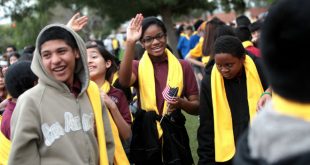The government has cited the COVID-19 pandemic as the reason for curtailing our liberty. From closing schools and gun shops to restricting church attendance and services, the government wasted no time with “emergency” declarations and statewide mandates. But courts have found that the government has not treated religious and secular organizations equally.
For example, the U.S. Supreme Court found that the state of New York treated houses of worship differently than secular organizations and ordered other courts to reconsider decisions in light of their ruling. At least two states must pay attorney’s fees for churches that sued the government over COVID-19 restrictions.
Now the highest court in Wisconsin has issue a ruling on local health departments’ power. In a 4-3 decision, the Wisconsin Supreme Court said that local health departments have no authority to close schools because of emergencies. The Public Health Madison & Dane County ordered schools closed last year. This order, the court contended, violated the First Amendment’s freedom of religion. From Fox6:
Friday’s ruling will have no immediate impact because the 2020-21 school year has ended, but it will limit the powers of health departments in the future by preventing them from ordering school closures.
“Even as the COVID-19 pandemic recedes, the court’s decision provides a critical correction that ought to prevent future abuses of power in an emergency,” said Rick Esenberg, president of the Wisconsin Institute for Law and Liberty. That group brought the lawsuit on behalf of five private schools and eight families in Dane County, School Choice Wisconsin Action and the Wisconsin Council of Religious and Independent Schools.
Justice Rebecca Bradley, who wrote the conservative majority opinion, said the law “cannot be reasonably read as an open-ended grant of authority.” Local health departments may do what is “reasonable and necessary” to slow the spread of disease, but they don’t have specific authority to close schools.
States are re-opening, but the lawsuits filed against them must be resolved. Violating constitutional rights carries a penalty, even if the violation has ceased.
 CURE News and Clergy Blog News and Commentary for Christians
CURE News and Clergy Blog News and Commentary for Christians



